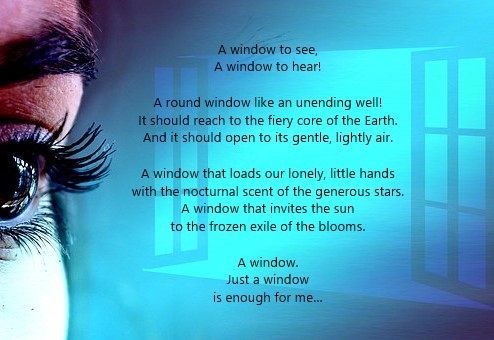Blog
The title for the novel “On Loving” has been chosen from a poem with the same title written by the great, late contemporary Iranian poet, Forugh Farrokhzad and in her memory. In a part of this story and during an interesting conversation between the two main characters, Siyavash and Rose, in Isfahan, Siyavash, the male character, tries to explain what he thinks about Forugh Farrokhzad’s work. He also recites a short section of a beautiful poem by Forugh, titled “Window”:
“Her poems have as much power as they do because they derive so much from her own life — her heartbreaks, desolation, disappointments, physical and emotional passion triggered by turmoil she endured as a woman in her society at her time — but all that is conveyed to you as a reader, man or woman, by her specific way of using words and phrases that makes you stop and think, or stop and feel, and then go on to notice the depth of the effect that it had on your soul. She unveils a woman’s delicate heart and soul, warmly inviting you to explore it, without any anticipation of being judged. Her poems let you connect with things around you as a human, even things as simple as a window you look through aimlessly every day, out of habit.”
He stood up, took another book from his shelves and opened it:
A window to see,
A window to hear!
A round window like an unending well!
It should reach to the fiery core of the Earth.
And it should open to its gentle, lightly air.
A window that loads our lonely, little hands
with the nocturnal scent of the generous stars.
A window that invites the sun
to the frozen exile of the blooms.
A window.
Just a window
is enough for me…”
(This poem has been translated by Maryam Dilmaghani and used by permission in “On Loving” with my great appreciation.)

Symbolism in “On Loving”
– Rose (as in Rose Hemmings): Symbol of “Frequent Blooming”, “Hope” (Surviving hardships)
– Lavender Rose: Symbol and sign of “Love at first sight” (Dean and Rose)
– Black Rose: Symbol of “Tragic Romance”(Siyavash and Rose)
– Siyavash: Symbol of “Innocence” (Based on the character from Book of Kings)
– Borna: Symbol of “Youth”
– Sohrab: Symbol of “Victory Over Resistance”
– Forugh: Symbol of “Brightness”
As many of “On Loving” readers noticed, variety of symbolism has been used in choosing character names, objects, etc. through the story. Some asked me about certain number of them. I am sharing a few of them here with you:
“What was said to the Rose”
This beautiful translation/interpretation of Rumi’s poem is one of the works of Coleman Barks, American poet who taught poetry and creative writing at the University of Georgia for more than thirty years. He is also the author of numerous Rumi translations. In this clip he recites his translation of “What was said to the Rose”.
He generously granted me his permission to use his translations/interpretations in my novel “On Loving”, and made me eternally grateful. On Loving main character’s name, Rose, has been chosen symbolically not only to represent “love”, but also to express” promise”, “new beginnings”, and “hope”. Rose Hemmings is a woman who keeps moving on, rising from the ashes again and again, regardless of all the hardships she endures.
“What was said to the Rose”
What was said to the rose that made it open
was said to me here in my chest.
What was told to the cypress that made it strong
and straight, what was whispered to the jasmine
so it is what it is, whatever made sugarcane
sweet; whatever was said to the inhabitants
of the town of Chigil in Turkestan that makes
them so handsome, whatever lets the pomegranate
flower blush like a human face, that is being
said to me now. I blush. Whatever put eloquence
in language, that’s happening here. The great
warehouse doors open; I fill with gratitude,
chewing a piece of sugarcane, in love with
the one to whom every ‘that’ belongs!
~ Rumi, 13th century Persian Poet
Translated by Coleman Barks, in his book. ‘Rumi the Book of Love – poems of ecstasy and longing’.
“Combining Eastern and Western literature”
Many of my readers and friends have been asking me what made me decide to intertwine Persian literature such as poems from Rumi, Hafez, Khayyam and Forugh with quotes and works of Western or other parts of the world’s literary legends such as Edgar Allan Poe, Bertrand Russell, Hugo, Dumas, etc. in my novel “On Loving”. To answer their questions, I thought I should share this beautiful masterpiece performed by Kayhan Kalhor, a Persian musician playing Camancheh (a Persian instrument), Rembrandt Frerichs from the Netherlands playing forte-piano and Tony Overwater, a Dutch jazz bassist, playing cello with all of you. The harmony is beautiful and make you connect to the depth of the music, touching your souls in a mystical way. Maybe it can talk for itself why I chose to do what I did. Art, literature and humanity, all share the same source and that is why we get inspired by them at any age, any level of education with any theme originating from any part of this universe. Enjoy the beauty of this musical masterpiece called “Offering”!



